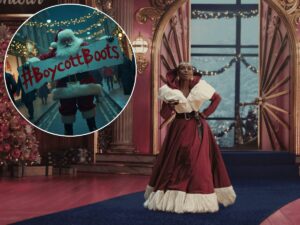With increased representation in tv shows, books, and social media in general, it can be easy to think that homophobia, biphobia, and transphobia aren’t big issues anymore. However, these are things people deal with every single day that we must continue to fight against. For this year’s Day Against Homophobia, Biphobia, and Transphobia, the TNF team have come together to share snippets of our experiences and ways that we combat discrimination. There will also be a list of resources at the end of this piece for further information and places to find support.
Trigger warning- discussions of homophobia, biphobia, transphobia
Adam- LGBTQ+ editor
Homophobia has been a part of my life as long as I can remember.
I grew up in a small northern town with equally small minded people, not the best environment for a young gay person figuring out who they are. I was lucky to have a family who loved and supported me as I came out and again as I explored my gender identity. Others were not so supporting. Being a queer feminine person in a northern town meant I had to navigate my sexuality in a culture where that wasn’t something to be celebrated. In school after I came out at the age of 12 it was so normalised to use the F slur towards me I didn’t even react eventually.
Sadly, 12 years on, I still experience homophobia far too regularly. From the outright to the subliminal attacks on my orientation it is still part of how I experience the world. Homophobia is also far more complicated than the narrative we often see in the media. Homophobia exists at the intersections of sexism, classism, and racism to name only a few. As a queer Hindu who identifies as hijra (third gender) these intersections underpin every encounter I have with homophobia and saddest of all, some of these encounters are from within our own community.
Internalised homophobia makes some in our community antagonistic towards the most visible of us and creates toxic internal divisions. Only by working to remedy homophobia in its entirety can we begin to walk freely in the world around us. We need to continue to assert our rights and our humanity, because we still have plenty of work to do before the LGBTQ+ community exist with equal respect and safety to everybody else.

Josh- Herstory editor
As a historian, I have read about true homophobia, from the execution of homosexuals in Medieval France to the chemical castration of Alan Turing in the 1950s. Due to this, I feel incredibly lucky to live in the age we do but that still doesn’t mean I haven’t personally encountered it in other ways. From the snide looks I get from people the moment I say I have a boyfriend, having to stop holding his hand in front of certain people, to openly being called a faggot when out with another gay friend. I like to think I can brush it off as ignorance, but there are times when I run it over in my mind and I have to ask, ‘when will the time come when that doesn’t happen anymore?’
Robyn- LGBTQ+ subeditor
Unfortunately, even in 2022, homophobia certainly still exists. Although I personally experience it more frequently through microaggressions, I have experienced a couple of more aggressive instances of homophobia. I think something a lot of queer women experience is disgusting sexualisation- being asked if they want to have a threesome just because they’re queer, people wanting to ‘watch’, and being treated as sexual objects rather than people. Despite being comfortably out for a number of years now, there are still times when simply holding my girlfriend’s hand feels like this huge scary thing when it’s something straight people can do without so much of a second thought. Again, even in 2022 we are still subject to staring and homophobic comments.
However, I think with increased positive representation and ongoing conversation, we can reverse these harmful views and stereotypes and make life easier for queer people in general to simply exist. Ignorance can’t be an excuse for homophobia, biphobia, transphobia, or any kind of discrimination. It really shouldn’t be that hard.
LGBTQ+ resources:
The Trevor Project (for LGBTQ+ young people)
Resources via Stonewall.org
Resources via Mind.org
Being Gay is Ok.org (for LGBTQ+ people under 25)













